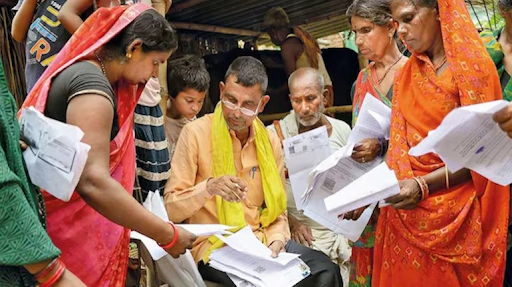



The Union government launched the 'Umeed' portal to centralise the registration of all Waqf properties nationwide. State Waqf Boards must register properties with geotagged details within six months. This initiative aims to enhance transparency and efficiency, following the contested Waqf (Amendment) Bill, 2025, which is currently under scrutiny by the Supreme Court.

Copyright infringement not intended
Picture Courtesy: INDIATODAY
The Union Government launches 'Umeed' portal to digitize and centralize Waqf property registrations nationwide.
Waqf, in Islamic law, is a charitable endowment where a person dedicates property for religious or charitable purposes. Once a property is declared as Waqf, it cannot be sold, gifted, or mortgaged.
The person who creates the Waqf is called the 'Waqif'. The income generated from these properties is used for the welfare of the community, such as funding schools, hospitals, orphanages, and supporting the poor.
'Umeed' stands for 'Unified Waqf Management, Empowerment, Efficiency, and Development'.
It is a centralized digital platform designed to achieve:
Registration Process
Mandatory Registration => All Waqf properties must be registered on the 'Umeed' portal. The respective State Waqf Boards will handle the registration process.
Timeline => There is a strict deadline of six months from the portal's launch for this registration to be completed.
Detailed Information Required => The registration is not just a formality. It requires detailed descriptions of each property, including its specific dimensions and its geotagged location.
Provision for Extension => If there are genuine technical or other significant reasons for a delay, an extension of one to two months may be granted.
Consequences of Non-Registration => Properties that are not registered within the given timeframe (including any extension) will be declared 'disputed'. These cases will then be referred to the Waqf Tribunal for resolution. Waqf Tribunals are quasi-judicial bodies established to adjudicate disputes related to Waqf properties.
Must Read Articles:
Waqf Act 2025 Faces Legal Challenge
Parliament Passes Waqf (Amendment) Bill 2025
SC Hears Waqf Act 2025 Challenge
Source:
|
PRACTICE QUESTION Q. "Religious rights cannot be absolute; they must yield to social reforms." Critically analyze. 150 words |



© 2026 iasgyan. All right reserved